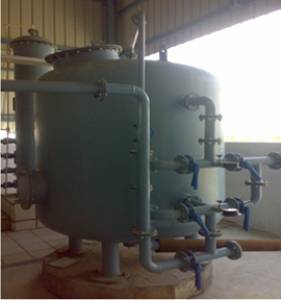Description
De-mineralization: A Comprehensive Guide & Product Overview
De-mineralization is a crucial process in various industries, encompassing the removal of mineral ions from a solution or substance. This detailed description outlines the significance, methods, and applications of de-mineralization, particularly focusing on our range of products designed to achieve optimal results.
What is De-mineralization?
De-mineralization involves the selective removal of dissolved mineral salts, primarily cations (like calcium, magnesium, sodium, potassium) and anions (like chloride, sulfate, bicarbonate) from water or other liquids. These minerals, while sometimes beneficial in moderate amounts, can be detrimental in many applications. Their presence can lead to:
- Scaling and fouling: In industrial processes, mineral deposits can clog pipes, heat exchangers, and other equipment, reducing efficiency and requiring costly maintenance.
- Corrosion: Certain minerals can accelerate corrosion of metals, leading to premature equipment failure.
- Product contamination: In pharmaceutical, food, and beverage industries, mineral impurities can negatively impact product quality and safety.
- Reduced product quality: Minerals can interfere with chemical reactions or alter the properties of the final product.
Methods of De-mineralization:
Several techniques are employed for de-mineralization, each with its own advantages and limitations:
- Reverse Osmosis (RO): A membrane-based process that forces water under pressure through a semi-permeable membrane, effectively rejecting mineral ions. Highly efficient for removing a broad range of minerals.
- Ion Exchange (IX): Utilizes resin beads that selectively attract and bind mineral ions, exchanging them for other ions (e.g., hydrogen or hydroxide). Effective for removing specific ions and achieving high purity levels.
- Electrodeionization (EDI): Combines ion exchange with electrodialysis, using an electric field to enhance ion removal. Offers continuous operation and reduced chemical usage compared to traditional IX.
- Distillation: Boils water and condenses the steam, leaving behind mineral impurities. A simple but energy-intensive method.
Our De-mineralization Products:
Our company offers a comprehensive range of products and services tailored to your specific de-mineralization needs. These include:
- High-performance Reverse Osmosis Systems: Customized systems designed for various flow rates and mineral removal requirements, incorporating advanced membrane technology and automated control systems. We offer solutions for both small-scale laboratory applications and large-scale industrial processes. Features include:
- [Specific feature 1, e.g., High salt rejection rate]
- [Specific feature 2, e.g., Low energy consumption]
- [Specific feature 3, e.g., Modular design for scalability]
- Ion Exchange Resin Systems: A selection of high-quality ion exchange resins optimized for different mineral removal applications. We provide resins tailored for specific ions and operating conditions, ensuring optimal performance and longevity. Features include:
- [Specific feature 1, e.g., High capacity and regeneration efficiency]
- [Specific feature 2, e.g., Long operational life]
- [Specific feature 3, e.g., Various resin types for different applications]
- Electrodeionization Systems: State-of-the-art EDI systems offering superior efficiency and reduced operational costs. Our EDI systems provide continuous, high-quality de-mineralized water with minimal maintenance. Features include:
- [Specific feature 1, e.g., Continuous operation and high flow rates]
- [Specific feature 2, e.g., Low chemical consumption]
- [Specific feature 3, e.g., Automated monitoring and control]
- Comprehensive Service and Support: We offer expert consultation, system design, installation, commissioning, and ongoing maintenance to ensure optimal performance and longevity of your de-mineralization system.
Applications:
Our de-mineralization solutions are employed across a wide range of industries, including:
- Power Generation: Producing high-purity water for steam boilers and cooling systems.
- Pharmaceutical Manufacturing: Ensuring the purity of water used in drug production.
- Food and Beverage Processing: Producing high-quality water for cleaning, processing, and beverage production.
- Semiconductor Manufacturing: Providing ultrapure water for wafer fabrication.
- Chemical Processing: Removing minerals from feedstocks and process streams.
Contact us today to discuss your de-mineralization requirements and explore how our products can help you achieve optimal results.
